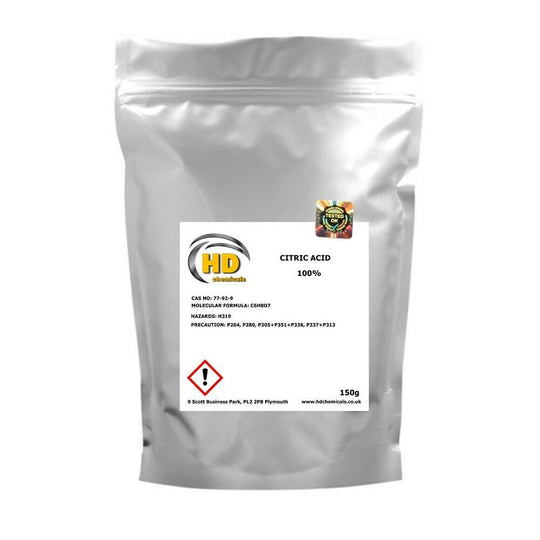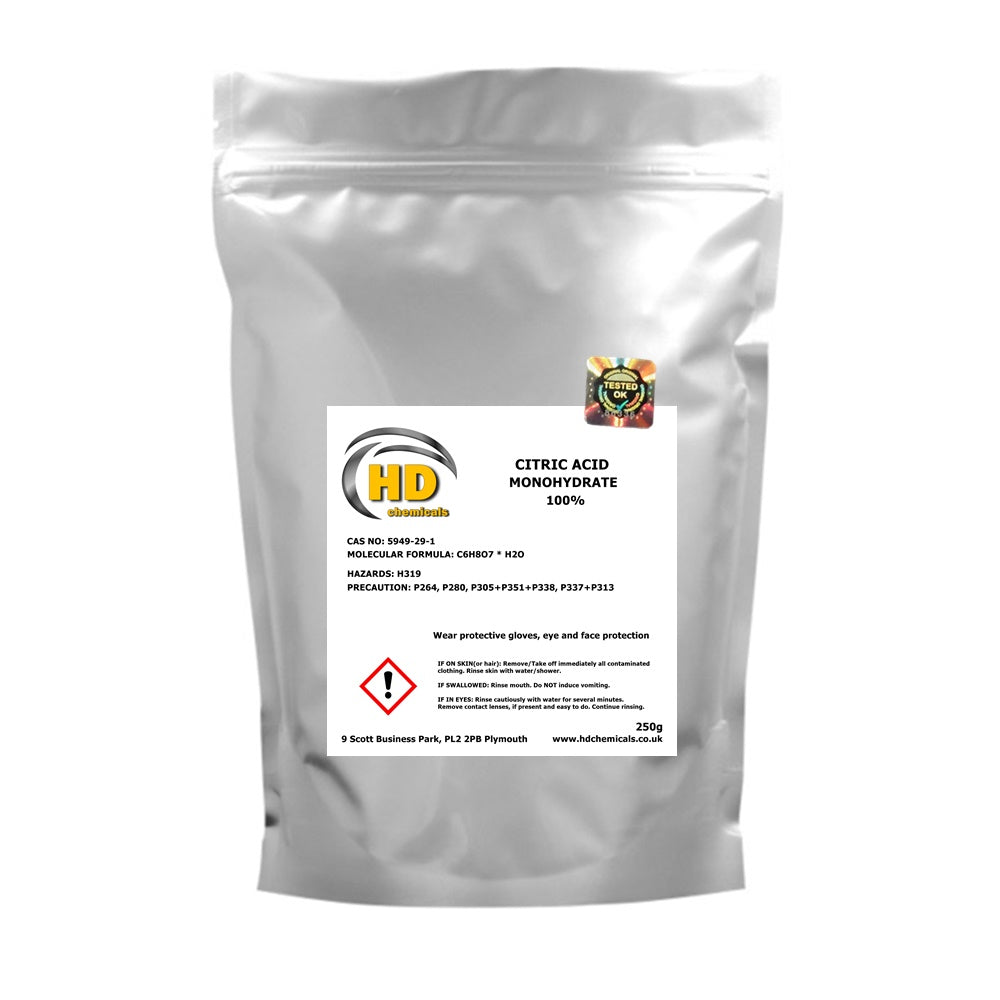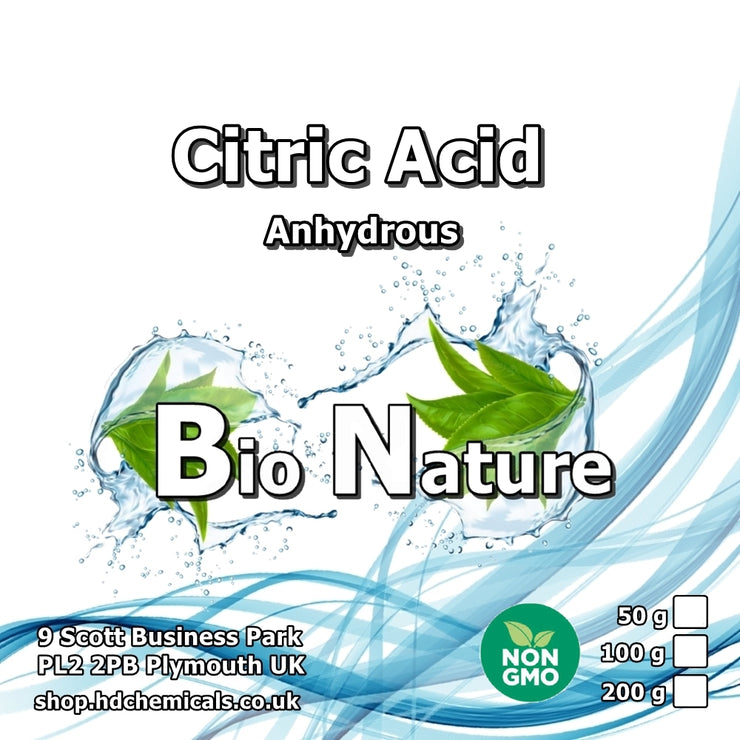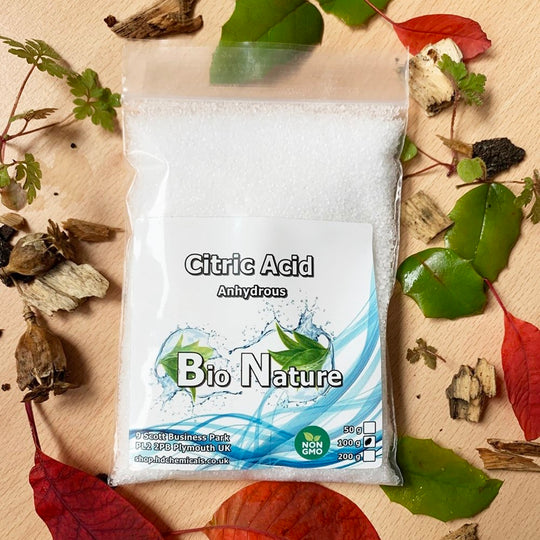Citric acid is a versatile and widely used organic acid that plays a crucial role in various industries, including food and beverage, pharmaceuticals, and cosmetics. Among the different forms of citric acid, anhydrous and monohydrate stand out as two distinct variations, each with its unique characteristics and applications. In this blog post, we will delve into the differences between citric acid anhydrous and monohydrate, shedding light on their structures, properties, and practical uses.
-
Chemical Structures:
- Citric Acid Anhydrous: As the name suggests, anhydrous citric acid is devoid of water molecules in its crystalline structure. Its chemical formula is C6H8O7.
- Citric Acid Monohydrate: Monohydrate, on the other hand, contains one water molecule for every citric acid molecule. Its chemical formula is C6H8O7·H2O.
-
Physical Properties:
- Solubility: Anhydrous citric acid is more soluble in water than its monohydrate counterpart. This higher solubility makes it advantageous in certain applications where rapid dissolution is essential.
- Stability: Monohydrate is generally more stable than anhydrous citric acid, particularly in humid conditions. The presence of water molecules helps prevent clumping and caking.
Applications and Uses:
-
Food and Beverage Industry:
- Anhydrous Citric Acid: Often preferred in the food industry for its rapid solubility, anhydrous citric acid is commonly used as an acidity regulator and flavor enhancer in various food and beverage products.
- Citric Acid Monohydrate: Due to its stability, monohydrate is often employed in applications where extended shelf life is crucial. It is a popular choice for products requiring a more controlled release of acidity.
-
Pharmaceuticals:
- Anhydrous Citric Acid: Commonly used in pharmaceutical formulations, anhydrous citric acid serves as a pH adjuster and a stabilizing agent for certain medications.
- Citric Acid Monohydrate: Pharmaceuticals that require a more stable form of citric acid, especially those susceptible to moisture, may incorporate monohydrate in their formulations.
-
Cosmetics and Personal Care:
- Anhydrous Citric Acid: With its quick solubility, anhydrous citric acid is often found in cosmetic products such as creams and lotions, contributing to their pH balance and stability.
- Citric Acid Monohydrate: In formulations where moisture stability is crucial, monohydrate is a preferred choice for cosmetics and personal care items.
In summary, while both citric acid anhydrous and monohydrate share the same fundamental properties, their differences in solubility, stability, and applications make each suitable for specific industries and purposes. The choice between the two depends on the desired characteristics of the end product and the conditions it will encounter. Whether it's enhancing flavors in the food industry or stabilizing pharmaceutical formulations, understanding these differences allows industries to harness the unique qualities of each form for optimal results.
The Magic of Citric Acid in Your Home: A Versatile Household Companion
Natural Cleaning Agent:
Descale Appliances: Citric acid's natural acidic properties make it an excellent choice for descaling appliances such as coffee makers, kettles, and dishwashers. Its ability to break down mineral deposits and limescale ensures your appliances run efficiently and last longer.
Remove Stains: Citric acid can be a powerful stain remover, particularly for hard water stains on glass, faucets, and tiles. Its acidic nature helps dissolve and lift stubborn stains, leaving surfaces sparkling clean.
Odor Neutralizer:
Eliminate Unpleasant Odors: Citric acid's natural deodorizing properties make it a fantastic odor neutralizer. Whether it's funky smells in the refrigerator, garbage disposal, or even pet odors, a citric acid solution can help freshen up your living spaces.
Preservative in Food and Beverages:
Extend Shelf Life: Citric acid serves as a natural preservative in the kitchen, helping prolong the shelf life of homemade jams, pickles, and canned fruits. Its acidic nature creates an inhospitable environment for bacteria and molds, keeping your culinary creations fresh for longer.
Environmentally Friendly Descaler:
Replace Harsh Chemicals: Citric acid provides a green alternative to traditional, chemical-laden descaling agents. By using citric acid, you reduce your environmental footprint while still achieving effective results in keeping your appliances free from mineral buildup.
Laundry Brightener:
Whiten Clothes: Adding citric acid to your laundry routine can help brighten whites and prevent the yellowing of fabrics. Its natural bleaching properties make it a gentle yet effective solution for maintaining vibrant and stain-free clothes.
DIY Beauty and Personal Care:
Hair and Skin Care: Citric acid is a popular ingredient in DIY beauty treatments. It can be used to create hair rinses that add shine and remove residue, as well as exfoliating facial scrubs to brighten the skin.
Environmentally Responsible:
Biodegradable and Non-Toxic: Citric acid is biodegradable, meaning it breaks down naturally over time without harming the environment. Additionally, it is non-toxic, making it a safe choice for households looking to reduce their exposure to harsh chemicals.
Here are practical solution rates for various household uses of citric acid:
-
Descaling Appliances:
- Mix 1-2 tablespoons of citric acid with 1 cup of water for coffee makers.
- Use a solution of 1 part citric acid to 1 part water for kettles and dishwashers.
-
Stain Removal:
- Create a paste with equal parts citric acid and water for surface stains.
- For laundry, add 1/4 to 1/2 cup of citric acid to the wash.
-
Odor Neutralizer:
- Dilute 1 tablespoon of citric acid in 1 cup of water for spray applications.
- Place a bowl of citric acid solution in areas with persistent odors.
-
Preservative in Food and Beverages:
- Use 1/4 teaspoon of citric acid per quart of liquid for preserving fruits and jams.
-
Environmentally Friendly Descaler:
- Mix a solution of 2 tablespoons of citric acid in 1 cup of water for appliances.
-
Laundry Brightener:
- Add 1/4 to 1/2 cup of citric acid to the laundry during the wash cycle.
-
DIY Beauty and Personal Care:
- Create a hair rinse with 1 tablespoon of citric acid in 1 cup of water.
- For facial scrubs, mix 1 teaspoon of citric acid with 2 teaspoons of a carrier oil.
Note: Always start with a lower concentration and adjust as needed. It's important to follow safety guidelines and manufacturer recommendations for specific appliances or surfaces. Additionally, perform a patch test in inconspicuous areas before using citric acid on fabrics, surfaces, or personal care products to ensure compatibility.




